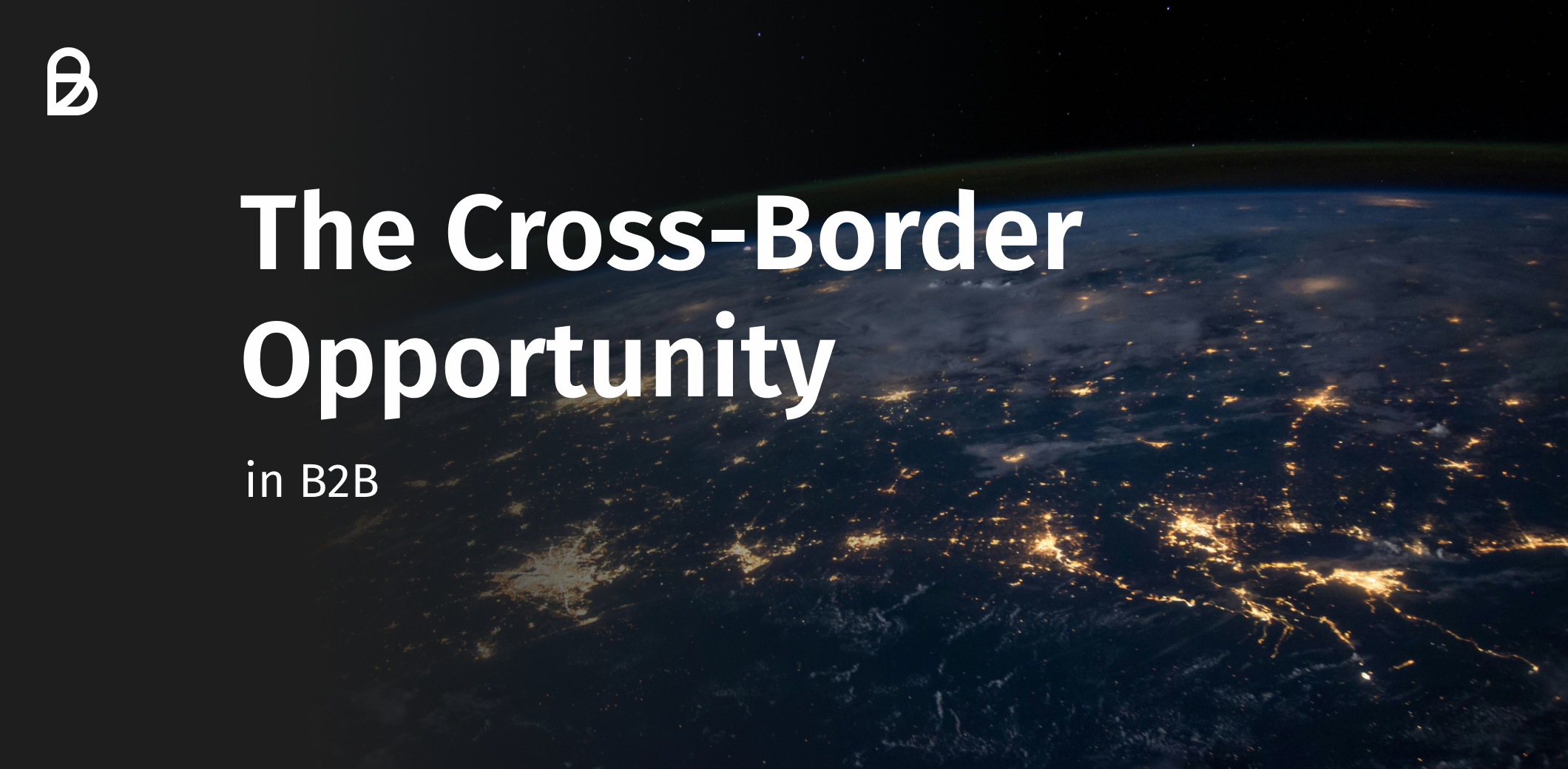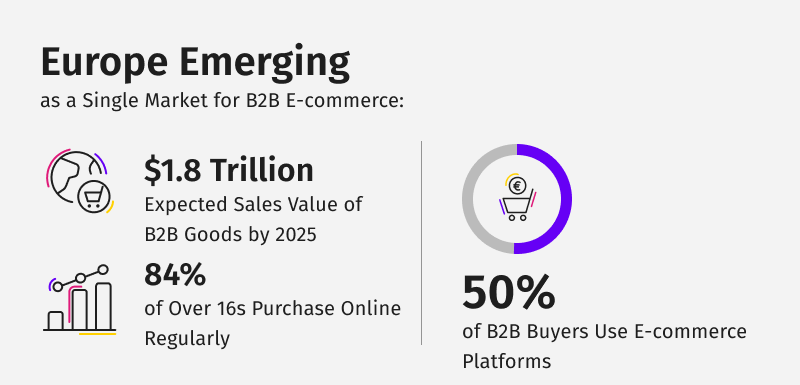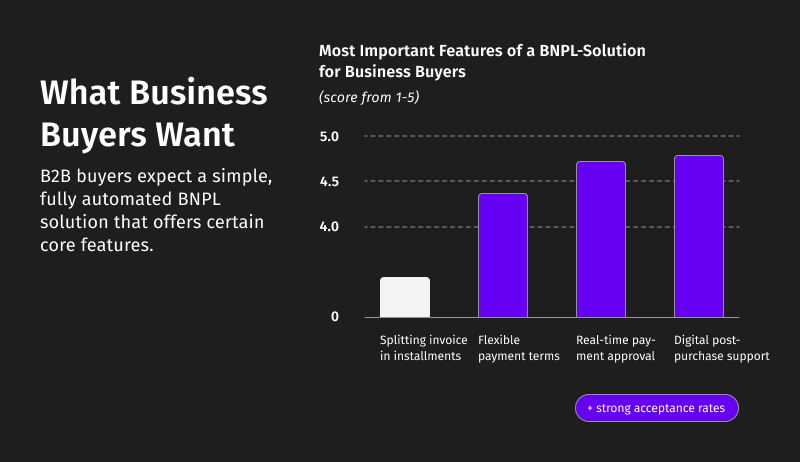The Cross-Border Opportunity in B2B
In the evolving landscape of a post-pandemic world, the e-commerce industry continues to experience substantial opportunities. One of the most significant is business-to-business (B2B) growth, outpacing its business-to-consumer (B2C) counterpart. This significant growth is evident when looking at the market values of both sectors from 2022. At that time, the B2B sector reached $7 trillion, surpassing B2C's $3 trillion by more than double.

Another noteworthy trend is the rise of cross-border transactions as key growth drivers for B2B brands, retailers, and marketplaces. The digitization of supply chains, alongside the proliferation of global commerce platforms facilitating smooth trade between buyers and sellers worldwide, has fueled this shift.
Europe is Emerging as a Single Market for B2B E-commerce
Europe’s B2B market is rapidly going digital, already surpassing the B2C sector. It’s anticipated that the total value of B2B goods sold online could reach $1.8 trillion by 2025. However, it remains significantly smaller when compared to the penetration observed in China or the US, highlighting many large, untapped pools of growth opportunities.
Germany, France, and the UK lead as the largest B2B e-commerce markets, similar to their prominence in B2C. However, e-commerce represents a smaller portion of overall B2B sales compared to its larger role in B2C transactions. To put this into perspective, in Germany, 84% of over 16’s purchase online regularly, whereas only 50% of business buyers use e-commerce platforms. Not all business buyers in Europe are the same. For example, buyers in Scandinavia are among the most digital in the world. According to Statista, 92% of surveyed wholesale companies in Scandinavia expect their sales to happen online, and almost one in four Scandinavian B2B companies generate their sales through e-commerce.
Unlike B2C, B2B e-commerce remains much more domestic. In B2C, it’s now the norm for buyers to shop using sites located outside their country, using sites available in multiple languages and offering shipping across Europe. In contrast, most B2B sites are only available to buyers within the same country. When examining the top 20 e-commerce sites in Germany, France, the UK, Netherlands, and Sweden, we found that only 57% provide B2B services. Additionally, among those, only 50% offer shipping outside their country.

Payments as a Key Enabler for Cross-Border B2B E-commerce Growth
Merchants in Europe benefit from a unified market with coordinated rules in terms of trade and customs. In 2021, there were over 30 million enterprises across the EU, with intra-EU trade valued at over €6 trillion.
Various public initiatives both at the European Union and national levels, aim to support business digitization and further strengthen the single market. A major initiative is the push for e-invoicing, which aims to standardize invoice exchange and VAT compliance across member states, ultimately replacing traditional paper-based methods. Already widely used in Scandinavian countries and mandatory for Business-to-Government transactions in many EU countries, with full enforcement for all businesses towards the end of the decade.
Another area for digitization in B2B is payments. Many businesses still lack access to fully automated and digital payment methods to streamline their payment processes and improve their cash flow management. Businesses now expect modern payment methods to meet their needs. Payments need to offer flexible payment terms with real-time payment approval and digital post-purchase support.
In B2B digitization, enhancing payment systems is key. Many businesses are yet to access advanced digital methods that could simplify payments and boost cash flow management. There's a shift in preference towards modern, flexible payment solutions over traditional ones. Wire transfers, digital wallets and card payments, for instance, face limitations like usage delegation restrictions, acceptance costs, and credit constraints, which affect cash flow and business buyers adoption.
As a result, Buy Now, Pay Later (BNPL) options and invoice payments are emerging as favored methods, offering flexible terms, real-time approval, and digital support after purchase, better meeting businesses' needs. Buyers also wish to see this flexibility in all their preferred ways of shopping, such as by phone, in-store, and across borders.

How Billie partnered with Alibaba.com to offer B2B BNPL for Cross-Border
The opportunity in cross-border commerce, the uptake of digital sales channels, and the need for digital pay later methods in B2B brought together Alibaba.com, a leading platform for global business-to-business (B2B) e-commerce, and Billie, the leading B2B payments innovator in Europe.
The implementation of Billie in Alibaba.com's checkout is a strong commitment by the B2B marketplace to even more user-centric payment processing. With Billie, Alibaba.com’s business buyers can purchase goods and defer payment for up to 30 days. At the same time, suppliers selling on Alibaba.com receive payment upon the shipment of goods, making Billie’s payment method a beneficial tool for the cash flow management of both sellers and buyers. This is possible because Billie performs real-time credit approval of buyers at checkout. This way, Billie can offer flexible payment terms to business buyers and at the same time reduce their own credit risk and administrative burden of commercial credit collection to zero.
The first Alibaba.com markets to go live with Billie are Germany, Austria, and Sweden, with other markets to follow in the coming months. This refers to the countries of the buying companies.
Buyers can get instant approval for flexible payment terms of up to 30 days, increasing average order value and buyer satisfaction, while sellers can focus on their core business thanks to complete fraud and payment default protection.
Since the beginning of their partnership in January, there has been a noticeable surge in buyers choosing Billie’s Buy Now, Pay Later solution. This indicates the growing preference for invoice-based payments among businesses in Europe. Billie’s payment method is available to Alibaba.com sellers throughout the world seeking to expand their business in Europe.